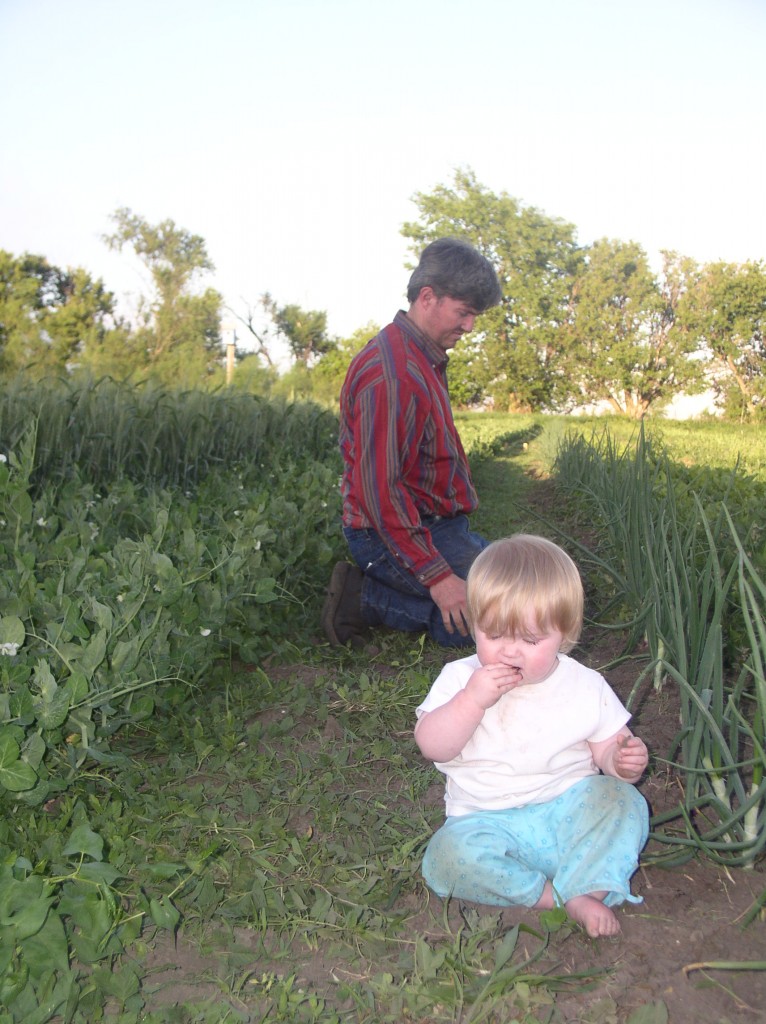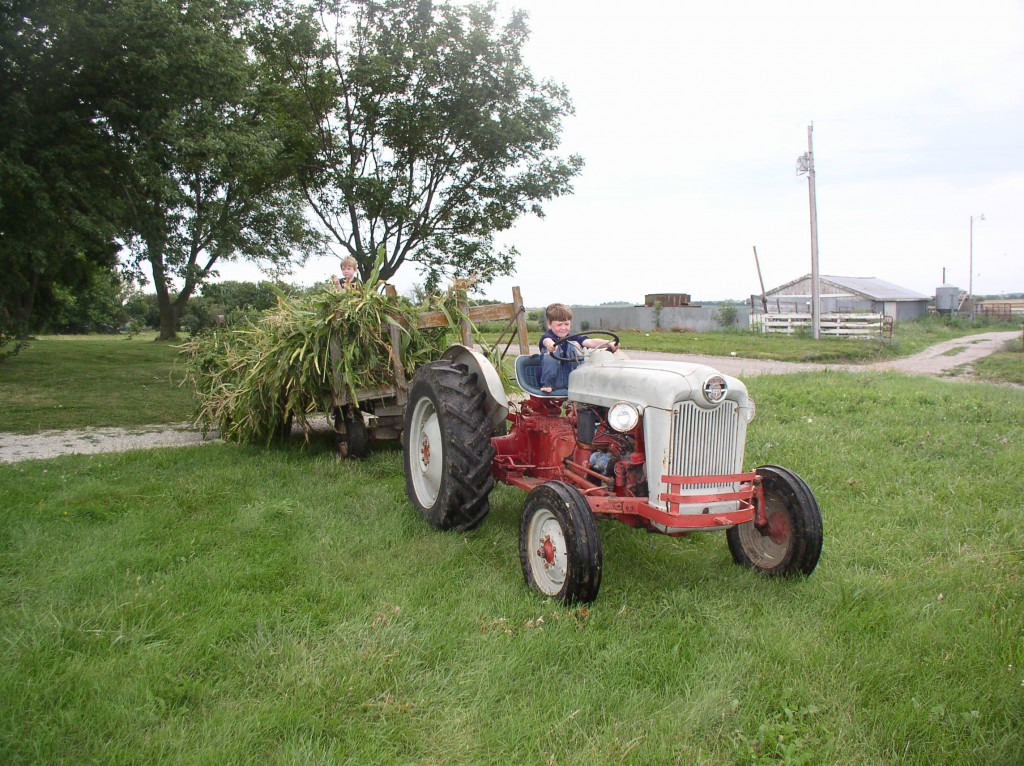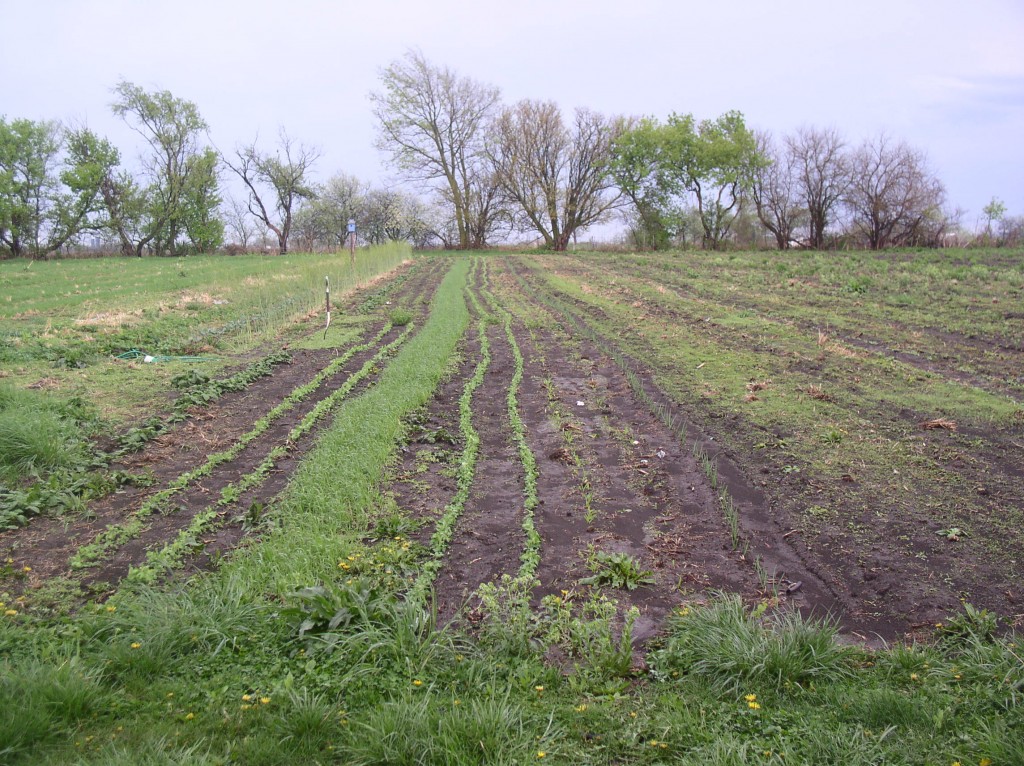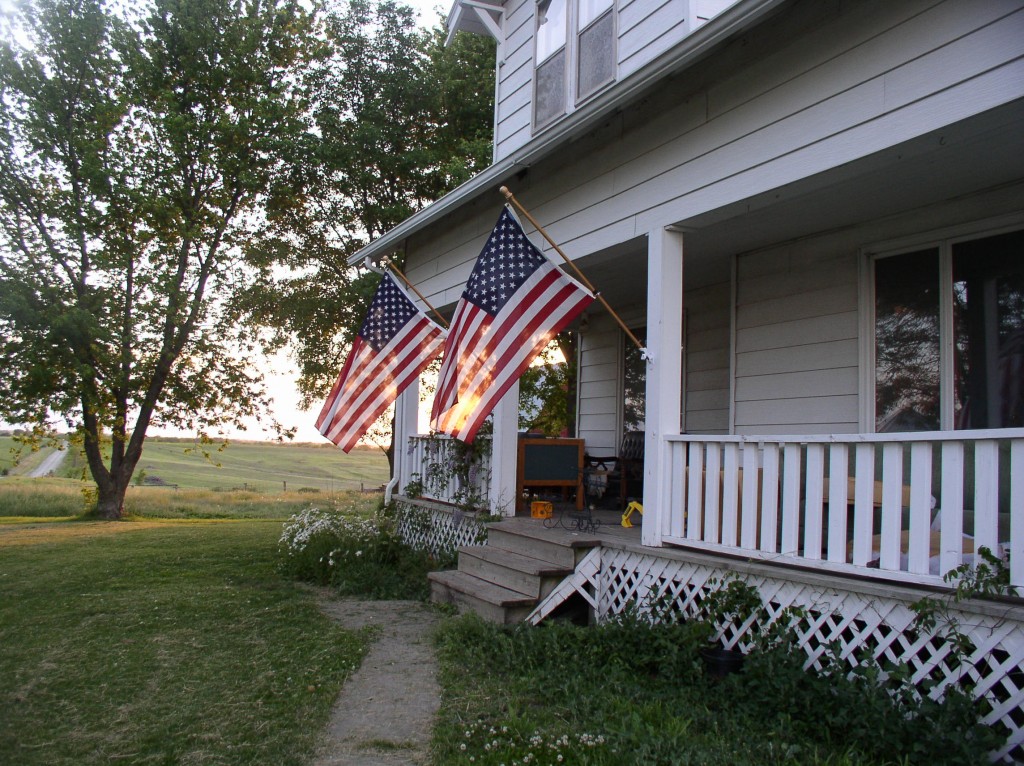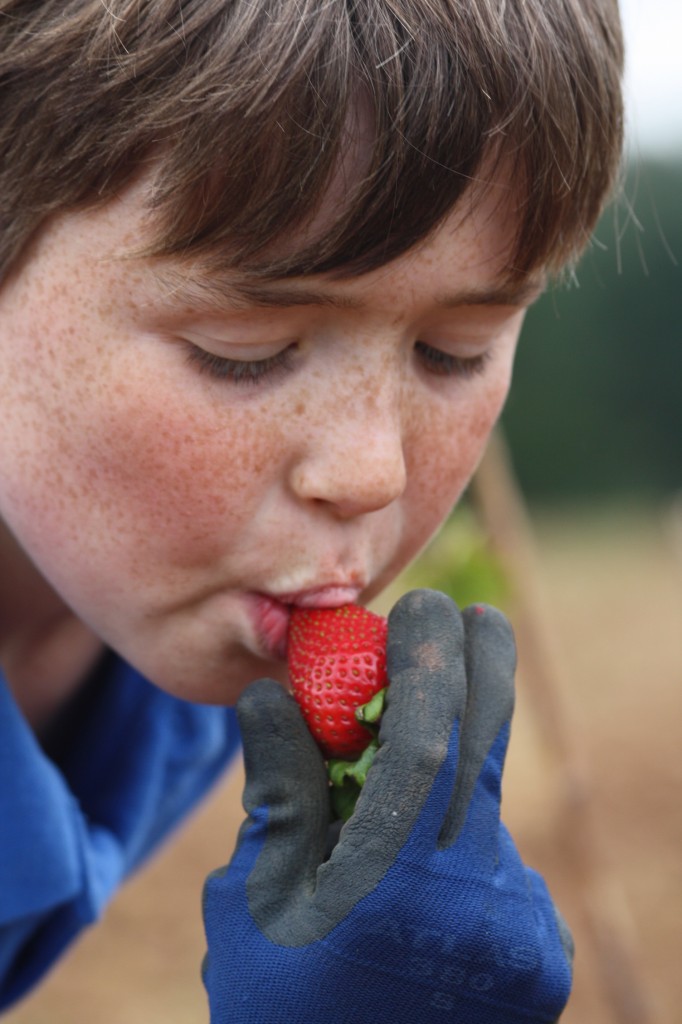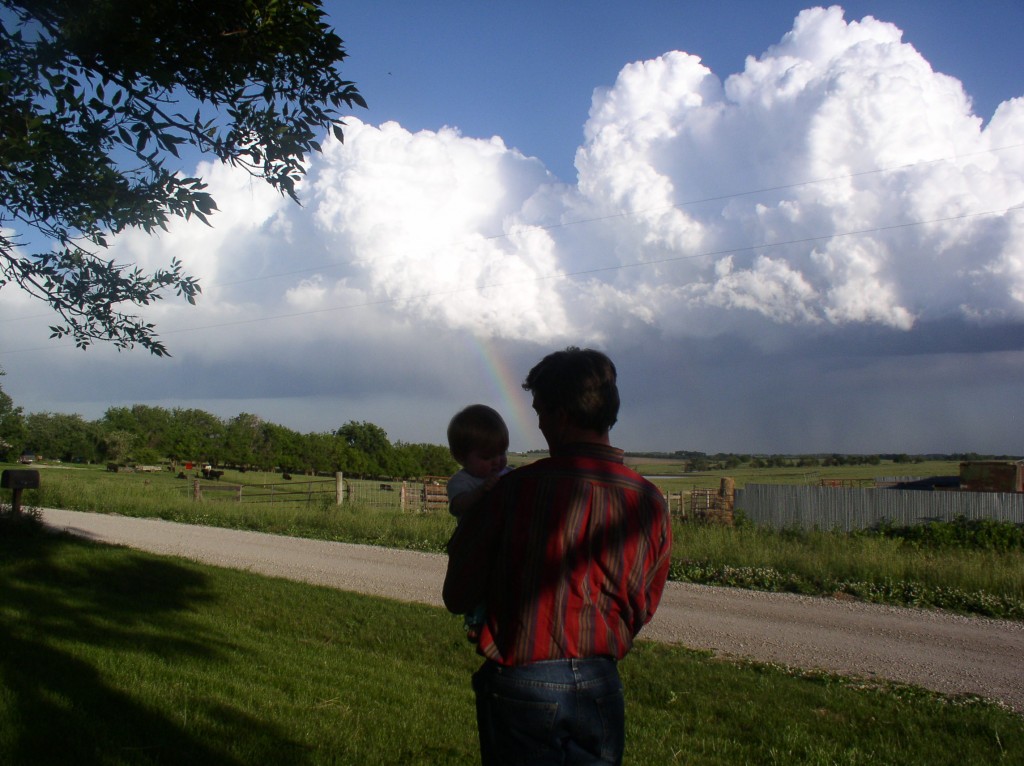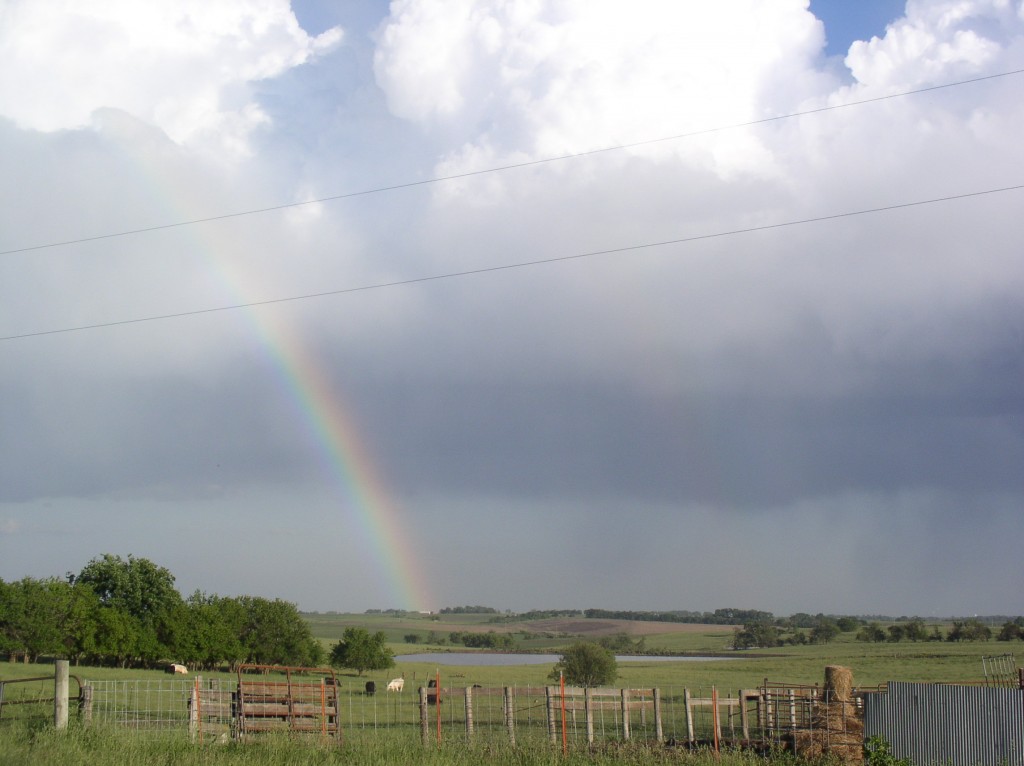It was, without a doubt, the most glorious garden we had ever raised.
The cool spring days had given way to the lazy heat of a Midwest summer and the first crops were ready to harvest. Every morning William would take the three oldest with him out to the garden, rakes, hoes, and trowels in hand, as they walked all the rows, checked for ripe fruit, and watched the ground for weeds. I could see their heads bobbing up and down as they followed him down the long row of peas that I was anxious to try. I could see William bend over and squeeze the pods, checking for ripeness.
When they trooped back in my oldest said “Not quite yet mom, if we wait until tomorrow they’ll be perfect!” Ezekiel was thrilled with the garden that year. He had spent time playing in the soil with his dad every day that year. He had learned how to drive the old tractor as slowly as a caterpillar crawls so that his dad could walk along behind the raised bed maker and plant the seeds in the freshly tilled earth. He had been given a set of tools all his own to use out in the garden. He pulled weeds from beside the tender sprouts, raked the beds smooth to prevent new weeds from growing, learned to watch the plants for disease and deficiencies.
Step by step, in his father’s shadow, he was learning how to be a good steward of the land.
His younger brothers were discovering the joys of a garden playground. The corn was growing fast during those warm summer days and the tall, grass like plants, had finally grown over their heads, just topping three feet. Up and down the rows they went, laughing and chasing each other in their own private jungle. I could hear their laughter and muffled conversations from the backyard as I hung out laundry while their baby sister crawled in the lawn at my feet.
It was a good garden.
We had sat around our kitchen table a few months earlier, deep in the middle of a Missouri winter, and planned our crops for the coming year. We had decided exactly how many quarts of tomatoes we needed to can, how many bags of sweet corn and green beans we wanted in the freezer, how many onions and potatoes we wanted to store in the cellar. I was thrilled because William had agreed to grow sugar beets for me and I was going to try my hand at making my own sugar that year. We’d had honey bees for years, but I really wanted to make my own brown sugar.
We’d even decided to order fruit trees.
William had decided years earlier that he wasn’t ever planting fruit trees again, we’d had to leave our previous orchard behind without ever harvesting the fruit of our labors and he was so discouraged by it that he had lost some of his love for the orchard trees. But he decided he was willing to try again. So we ordered peaches, plums, nectarines, apples, and cherries and determined to plant the young saplings along the north edge of our vegetable garden.
The spring passed quickly, William tilled the garden, worked with all of us to plant the long rows of peas, onions, and potatoes while the nights were still cool and moist. Later we worked under the warm sun to put in tomatoes, beans, corn, strawberries, asparagus, peppers, cabbage, broccoli, and the list goes on and on.
It was truly the finest garden we had ever had. Every morning in our family prayer we prayed for a bountiful crop from our garden. When William walked in the field with the children he would often gather them together to pray over the crop, and when we knelt together at night we thanked our Heavenly Father for the garden and asked him to bless it that it would yield a glorious harvest.
Every day we would stand at its edge and just breathe in the beauty of the earth and her bounty. We felt blessed beyond measure and were so grateful for the harvest we would have.
One early summer Saturday William and the boys had just finished their rounds in the field and came in for dinner. “The peas are almost ready mom!” Ezekiel announced, “Tomorrow we’ll pick them all!” He told me all about the plants as we ate and a lovely rainstorm built upon the western horizon.
It was one of my favorite parts of the Midwest, the wonderful rain.
We rarely, if ever, had to water our garden. Almost like clockwork a shower would show up every 7-10 days and soak the earth. We could sit on our porch and feel the dip in temperature as the first drops would reach our yard. It was wonderful to watch it fall on Mr. Huss’ hay fields across the gravel road, hear it on the roof and windows, and hear the birds singing from their nests in the trees as the soft, easy drizzle came down.
We finished our meal and went out to the porch to watch the rain. The boys all ran around the yard, chasing each other with homemade swords and yelling the top of their lungs as the storm winds began to whip the leaves of the trees. Esther was just discovering her ability to climb stairs so I sat with her by the porch steps as she went up and down, grinning with pleasure at her accomplishment. William stood with his arms folded, watching the storm come toward us.
In the Midwest, clouds don’t bunch and gather against the mountains before they drop their rain like they had where we’d lived in the West. They travel like waves across the ocean. You can see them billow in the sky, bunch in the air above you and move across the landscape. We watched as the clouds began to swirl and darken. And then swirl more and begin to turn a strange shade of green.
It wasn’t a color we saw often in the clouds and I turned to William. “I’ve never seen them that color before, have you?” He just shook his head and kept watching.
I stood up next to him as Esther moved out onto the grass to crawl and we watched, shoulder to shoulder, as the dark billowing clouds on the horizon sunk low over the ground and began to move fast towards our farm.
A wave of ice cold air, pushed forward by the storm, hit us just as the clouds reached the neighbor’s house almost a half mile away. We saw it pass their house and disappear.
Their home, visible less than two seconds earlier, was suddenly completely erased by the darkness of the cloud. William looked over at me, alarmed, and said “Something’s wrong, get in the house.” He ran out after the boys, I scooped up Esther, and together we hurried into the house as the winds hit us full force and mere second before we discovered why the neighbor’s house had disappeared.
It wasn’t a summer rainstorm. It was hail.
It crashed into the house with such force that the entire structure began to shake. The hail struck the windows and I winced at the sharp cracking it caused. It felt as if the house was going to fall apart under the onslaught.
We heard the crash and shatter of glass from an upstairs bedroom and my eyes must have been as big as dinner plates when I turned to William and said “What is this?!” He just shook his head and we did something we’d never done in all our years of living in Missouri. We grabbed our children and we ran to the basement.
We all crouched together on the bottom steps listening to the sound of destruction over our heads. We heard the screen door slamming against the wall, we heard more glass shattering, we heard what sounded like rocks being thrown at the walls of our house, and we huddled together with our shoulders hunched against it.
If felt like forever, but it was probably over in less than twenty minutes. As the sounds stopped and the noise level dropped from a raging war to an unnatural silence, we emerged from the dark basement and walked up to check the damage.
We walked out onto the porch we had just occupied and the entire world had changed.
The green of the lawn was completely eclipsed by the white of hailstones. My boys exclaimed their wonder and climbed down to see who could find the biggest one. They finally brought me one the size of a softball, its edges knobby and hard as stone.
The temperature was at least 15 degrees or more cooler than it had been, but even with the drastic temperature difference the ice began to melt quickly. And as it melted, revealed the utter devastation it had left behind.
The lawn was covered with bits of leaves and branches from the decimated trees. We counted over 6 dead birds on the lawn. Knocked from their nests by the relentless ice and wind. The daylily patch had been leveled to the ground and I counted at least three shattered windows around the house and one destroyed air conditioner in the backyard.
And then it hit us.
Almost of one accord William, Ezekiel, and I turned towards each other and exclaimed in horror “the garden!”
We all ran, William, the boys, and I with Esther on my hip, around the house to the edge of the field.
Silence.
No one said anything. I don’t think any of us could find a voice to speak. We simply stood in silence on the edge of destruction.
Nothing was left. Not one recognizable plant. The peas that we were going to pick tomorrow were torn to shreds and beaten into the ground. The three foot tall corn had been ripped and shredded until only two inch stalks were left sticking out of the ground. Over the entire 3 acre field we couldn’t see one piece of vegetation larger than the size of a thumbnail.
Nothing of our hard work remained.
Ezekiel and William stood side by side in front of me. I couldn’t see their faces, but I could hear the heartbreak in Ezekiel’s voice when he finally turned to William, tears in his eyes and asked, “Why dad? Why did God let our garden get destroyed? We worked so hard on it, why did he let this happen?”
Oh my son, I thought, my heart breaking for him. Oh my little boy. To have to come to that question so young.
I watched William as he shook his head, put his hand on Ezekiel’s shoulder and turned to him.
“I don’t know Ezekiel, I don’t know why God let our garden be destroyed,” and his own voice broke as he surveyed the loss of the crops he had labored for. “Whatever his reasons are, I don’t know them, but I know what we’re going to do next.” He looked down at Ezekiel and waited for his eyes to meet his. “We’re going to go get our rakes and our hoes and we’re going to clean up and plant again.”
And that is just what they did. William, Ezekiel, Ephraim, and Enoch trudging behind on his little toddler legs, made their way through the downed branches, shredded leaves, and dead birds to the barn, picked up their tools and headed back to the garden. They worked together in the cool of the storms aftermath. They worked together as the last of the storm clouds parted and the sun came out to shine the last of its golden glory across the wet earth.
When they finally put their tools down and came in with muddy shoes and weary hearts. They had found a measure of acceptance. They didn’t know why, but they believed that there was a why somewhere. They just had to keep digging in the dirt to find it.
The summer went on. We learned the day after the storm that we had caught the southern edge of a tornado that whipped across Iowa and had leveled several homes to the ground. We felt very grateful that it was only our garden that was lost. William kept the same routine he’d had before the storm and soon the field was green again with crops growing strong and beautiful.
It’s an interesting thing, looking back at my experiences in this life. I recall the difficulties so much more than the ease. I recall the moments that stretched my faith, broke my heart and enlarged it, tested my charity for others and asked me to prove whether I really believed the things I know in my heart to be true. The garden was one of those things for me. I pondered often the agony of Ezekiel’s question of “why?”
Why indeed? Why is it that just when we were trying our hardest, when we were trying to follow the counsel of the prophets and the scriptures, why were our efforts so fruitless? It felt like a betrayal. We had tried, we had labored, we had loved our garden, we had sacrificed for it, prayed over it, and done everything in our power to guarantee a good crop. Why hadn’t God protected that?
It was mid-September when I finally understood one of the “why’s” of the storm. I was sitting at the kitchen table when Ezekiel came running into the house, his face beaming and his hands outstretched and full of strawberries.
“Look mom! Look at my berries! They came back better than ever! Dad said that because they were pruned by the hailstorm that our fall crop is sweeter and bigger, and he’s right! I brought these for you.” He put them down on the table and we smiled and ate them together.
I sat and stared at those berries as my little boy ran out the back door, back to the garden where his dad was still working.
I had forgotten that our strawberries were ever-bearers. I didn’t normally think of them that way because even though they bloom and produce throughout the summer season the first crop in June is usually the biggest and sweetest harvest and I don’t do much more than graze an occasional berry after that. I had forgotten that they would bounce back from a pruning.
I got up and wandered out the back door, looking over towards the garden where William and the kids were all working together.
I could see green beans, corn, and tomatoes. I saw flowers on the edge of the garden, the blossoms moving gently in the slow breeze. To look at the garden growing peacefully beneath the late summer sun you would never know the destruction it had endured. The seeds we planted after the storm came up faster and grew better than we ever could have imagined. What looked like loss, destruction, and betrayal came back as abundance, beauty, and a blessing.
I have thought often of that storm and those autumn strawberries. Of a little boys honest question, a father’s faith, and an experience that I could not have taught my son in any better way.
Storms are common things in life. We all experience them from time to time. Sometimes it is a physical storm; the loss of a job, an accident that robs us of a loved one or an ability, a disease that strikes with no warning or reason. Sometimes it is an emotional storm; the betrayal of a spouse, the defection of a child, the callous words of a friend. It’s easy to believe, when it’s your garden that has been destroyed, your life that has been torn asunder, your dream that has been lost or your heart that has been hurt, that the loss is a message from God of His displeasure with us, that we must somehow be lacking or that perhaps someone else is. But I don’t believe that’s the purpose of storms.
One of the most powerful scriptures I know is found in Matthew 5:43-45
“43 Ye have heard that it hath been said, Thou shalt love thy neighbour, and hate thine enemy.
44 But I say unto you, Love your enemies, bless them that curse you, do good to them that hate you, and pray for them which despitefully use you, and persecute you;
45 That ye may be the children of your Father which is in heaven: for he maketh his sun to rise on the evil and on the good, and sendeth rain on the just and on the unjust.”
I read this scripture and it seems to me that the Savior is reminding us that life is beautiful and hard for everyone. No matter who they are, no matter what they’ve done, what they have, what they’ve said, or what we think we know of them; people are still people. They struggle and they succeed, they mourn and they laugh, they grieve and rejoice, they feel the sunshine and the rain just as we do.
And the Lord asks us to be filled with love for all mankind. Not just on the sunny days when it’s easy, but during the storms as well. He asks us to forgive the people who in their own pain strike out and cause us pain. He asks us to be kind to unkind people. To not perpetuate sorrow, grief, or cruelty, even if we have had to endure it.
We are blessed with storms that we cannot control so that we can learn to recognize the storms we can control. The ones within our own hearts and minds that we can choose to hold onto or let go.
I didn’t harvest anything from the first seeds we planted the year of the hailstorm, but I had a marvelous harvest nonetheless. My husband set an example of faith to my son that I have been grateful for ever since. He didn’t understand why our garden was destroyed but he accepted that we were simply in the path of the storm. We weren’t the only farmers who lost crops that day and it did no good to be eaten up with regret, anger, or bitterness over it. He picked up the tools of his trade and he went back to work. He showed his sons how to forgive the garden and the earth and the storm for not giving him exactly what he hoped for. He showed them how to tenderly care and express gratitude for something that had caused him disappointment but was still worthy of his love and his efforts.
Because of William’s faith my son learned to keep going in order to get past disappointment.
Because of William’s willingness to submit to the storm my son learned that life can sometimes damage you but it can’t destroy you unless you just stop trying.
Because of William’s gratitude for a harvest yet unseen my son learned that there are things worth sacrificing for that take time, effort, a great deal of hope, and persistence. He learned that you can’t give up the first time something goes wrong, or even the second, third, or fifty-seventh time. Each set-back is just another way to learn a better way.
And because of William’s faith in God my son learned that he didn’t need to have all the answers in order to do a good work. He didn’t need to understand all of God’s “why’s” and “how’s” in order to offer loving service and his best efforts. He just needed to be willing and that was enough.
My sons willing hands helped bring forth a glorious harvest that year, and I can look at the lessons he learned through that hailstorm and be so grateful for that destruction. I can look at the young man he is, the willingness he has to serve, and be so grateful for the storm that knocked down everything we had labored so hard for.
I could not see, as I stood there viewing the hail and the wasteland of my garden on a summer afternoon, that I would have any harvest from that storm-wracked soil. But I was wrong. We plant gardens so that we can have beautiful harvests, but seldom do we stop to realize that we ourselves are products of a garden. Our Heavenly Father gives us opportunities to grow, to be pruned back in order to become stronger, to receive just the right nourishment to thrive, to have just enough rainstorms to make us grateful for sunshine.
My son’s faith was the greatest harvest we had from that garden and I would gladly go through any storm for that. To know that my son has what he needs in his own heart to keep going when life gets hard is a treasure beyond anything I can grow with my humble agrarian skills.
And so I can say with all integrity, thank God for hailstorms. And thank God for everlasting harvests.

